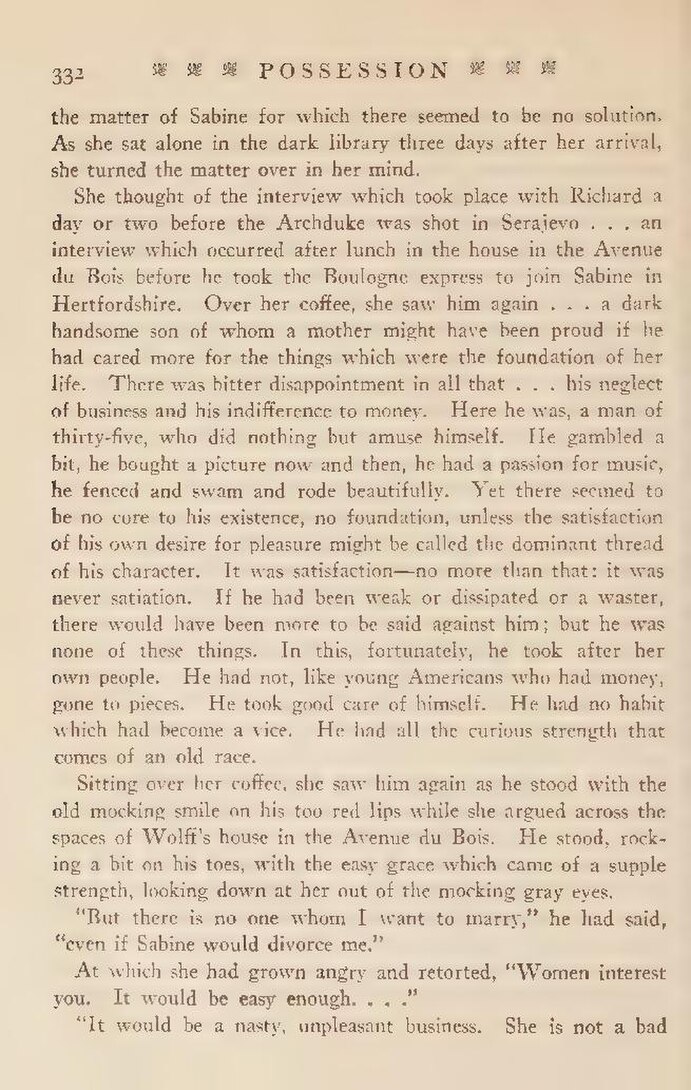the matter of Sabine for which there seemed to be no solution. As she sat alone in the dark library three days after her arrival, she turned the matter over in her mind.
She thought of the interview which took place with Richard a day or two before the Archduke was shot in Serajevo . . . an interview which occurred after lunch in the house in the Avenue du Bois before he took the Boulogne express to join Sabine in Hertfordshire. Over her coffee, she saw him again . . . a dark handsome son of whom a mother might have been proud if he had cared more for the things which were the foundation of her life. There was bitter disappointment in all that . . . his neglect of business and his indifference to money. Here he was, a man of thirty-five, who did nothing but amuse himself. He gambled a bit, he bought a picture now and then, he had a passion for music, he fenced and swam and rode beautifully. Yet there seemed to be no core to his existence, no foundation, unless the satisfaction of his own desire for pleasure might be called the dominant thread of his character. It was satisfaction—no more than that: it was never satiation. If he had been weak or dissipated or a waster, there would have been more to be said against him; but he was none of these things. In this, fortunately, he took after her own people. He had not, like young Americans who had money, gone to pieces. He took good care of himself. He had no habit which had become a vice. He had all the curious strength that comes of an old race.
Sitting over her coffee, she saw him again as he stood with the old mocking smile on his too red lips while she argued across the spaces of Wolff's house in the Avenue du Bois. He stood, rocking a bit on his toes, with the easy grace which came of a supple strength, looking down at her out of the mocking gray eyes.
"But there is no one whom I want to marry," he had said, "even if Sabine would divorce me."
At which she had grown angry and retorted, "Women interest you. It would be easy enough. . . ."
"It would be a nasty, unpleasant business. She is not a bad
